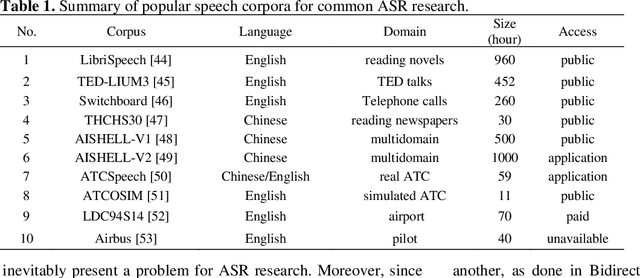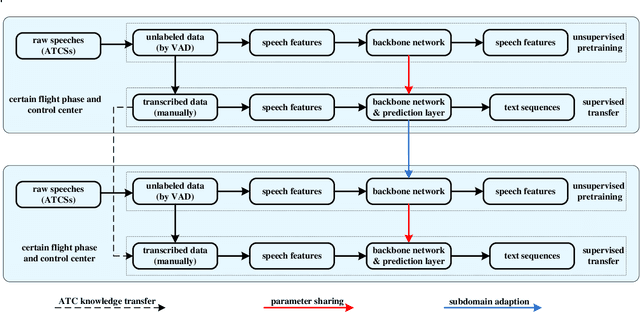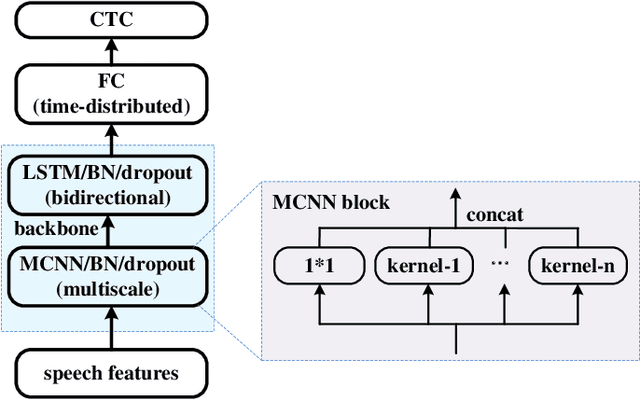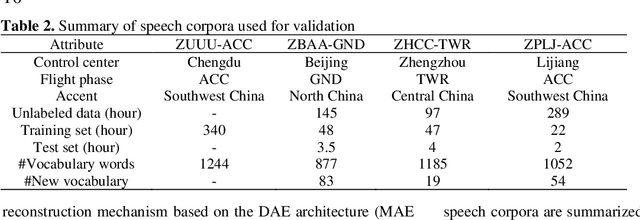Zhengmao Chen
Improving speech recognition models with small samples for air traffic control systems
Feb 16, 2021



Abstract:In the domain of air traffic control (ATC) systems, efforts to train a practical automatic speech recognition (ASR) model always faces the problem of small training samples since the collection and annotation of speech samples are expert- and domain-dependent task. In this work, a novel training approach based on pretraining and transfer learning is proposed to address this issue, and an improved end-to-end deep learning model is developed to address the specific challenges of ASR in the ATC domain. An unsupervised pretraining strategy is first proposed to learn speech representations from unlabeled samples for a certain dataset. Specifically, a masking strategy is applied to improve the diversity of the sample without losing their general patterns. Subsequently, transfer learning is applied to fine-tune a pretrained or other optimized baseline models to finally achieves the supervised ASR task. By virtue of the common terminology used in the ATC domain, the transfer learning task can be regarded as a sub-domain adaption task, in which the transferred model is optimized using a joint corpus consisting of baseline samples and new transcribed samples from the target dataset. This joint corpus construction strategy enriches the size and diversity of the training samples, which is important for addressing the issue of the small transcribed corpus. In addition, speed perturbation is applied to augment the new transcribed samples to further improve the quality of the speech corpus. Three real ATC datasets are used to validate the proposed ASR model and training strategies. The experimental results demonstrate that the ASR performance is significantly improved on all three datasets, with an absolute character error rate only one-third of that achieved through the supervised training. The applicability of the proposed strategies to other ASR approaches is also validated.
ATCSpeech: a multilingual pilot-controller speech corpus from real Air Traffic Control environment
Nov 26, 2019



Abstract:Automatic Speech Recognition (ASR) is greatly developed in recent years, which expedites many applications on other fields. For the ASR research, speech corpus is always an essential foundation, especially for the vertical industry, such as Air Traffic Control (ATC). There are some speech corpora for common applications, public or paid. However, for the ATC, it is difficult to collect raw speeches from real systems due to safety issues. More importantly, for a supervised learning task like ASR, annotating the transcription is a more laborious work, which hugely restricts the prospect of ASR application. In this paper, a multilingual speech corpus (ATCSpeech) from real ATC systems, including accented Mandarin Chinese and English, is built and released to encourage the non-commercial ASR research in ATC domain. The corpus is detailly introduced from the perspective of data amount, speaker gender and role, speech quality and other attributions. In addition, the performance of our baseline ASR models is also reported. A community edition for our speech database can be applied and used under a special contrast. To our best knowledge, this is the first work that aims at building a real and multilingual ASR corpus for the air traffic related research.
 Add to Chrome
Add to Chrome Add to Firefox
Add to Firefox Add to Edge
Add to Edge